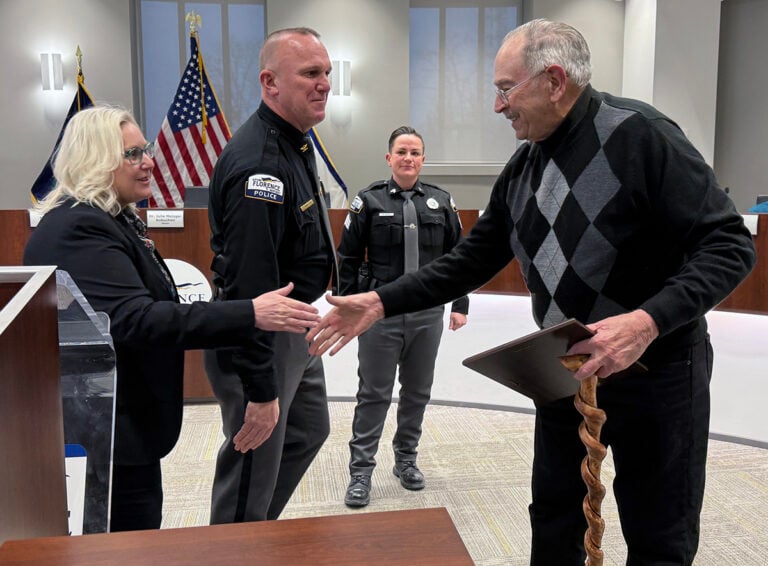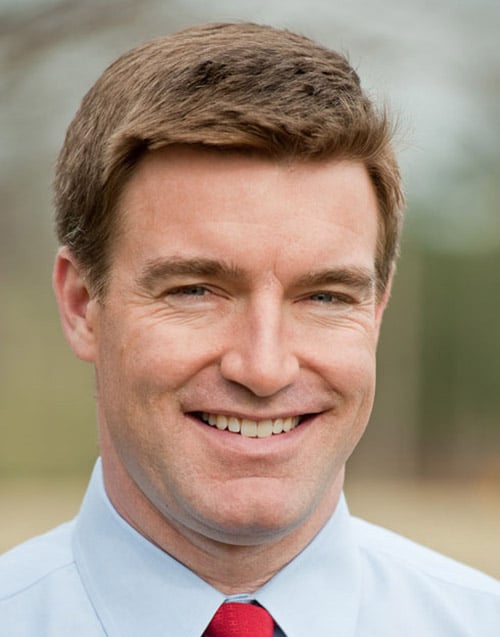WASHINGTON – The cavalry charge that is the 2016 Republican presidential campaign got underway this week with Sen. Ted Cruz letting everyone know their worries are over, he’s going to let them vote for him for president.
Many, perhaps more than a dozen, are likely to follow the Texas lawmaker in short order, including Kentucky’s own Sen. Rand Paul, who is slated to take the plunge on April 7.
Like a DeMille epic, we may be talking about a cast of thousands.

It sometimes seems, despite a potential field that, like a DeMille epic, offers a cast of thousands, that Cruz, the acknowledged bad boy of the upper chamber, is taking direct aim at Paul, perhaps looking to force him out early and reap the benefits.
It’s been an open secret for some time, for instance, that Paul planned to announce his candidacy in early April – a date that would free him from having to file official fundraising reports for the first quarter. Cruz opted to jump to the head of the line and make his campaign for the White House official on March 23, requiring his staff to deal with the avalanche of paperwork – a small headache, perhaps, but interesting nonetheless.
And the selection of Liberty University in Lynchburg, Virginia, the school founded by the late Rev. Jerry Falwell, the founder of the Moral Majority (although many have noted it is neither) as his jumping-off point is no accident. The site establishes that, in addition to his carpet bombing attacks on the federal government, Cruz is making a play for the God crowd – anti-abortion, anti-same sex marriage and such straight down the line.
Paul, on the other hand, has made it clear that the so-called moral issues will take a back seat in his campaign, even though he holds positions similar to those maintained by Cruz and most of the other potential candidates looking at the GOP presidential primaries.
“I think that the Republican Party, in order to get bigger, will have to agree to disagree on social issues,” Paul told vocativ.com, last year. “The Republican Party is not going to give up on having quite a few people who do believe in traditional marriage. But the Republican Party also has to find a place for young people and others who don’t want to be festooned by those issues.”
That remark, and others, has placed Paul on the outside looking in regarding Moral Majority voters who remain a significant constituency within the Republican Party. Big wigs, like fellow Kentuckian Gary Bauer, already have all but written off Paul as the GOP’s standard bearer, which might prove problematic.
All of which makes Paul’s effort all the more interesting.
For one thing, despite his rather transparent play, Cruz doesn’t have a sure hold on the Moral Majority vote. Former Arkansas Gov. Mike Huckabee, a Baptist preacher who won the Iowa caucuses in 2008, and Dr. Ben Carson, who captured plenty of hearts and minds within the GOP with his broadsides at President Obama, will certainly grab their fair share. And with the list of other potential candidates as wide as the sky, Cruz might have difficulties drumming up the degree of support he anticipates.
Paul looks to be taking the road less traveled, aiming his message at constituencies that haven’t, at least in the recent past, exhibited much interest in voting Republican, offering him an interesting though treacherous path to the nomination.
The strategy could be showing results. Paul won the straw poll at the Conservative Political Action Conference outside Washington, D.C., in February thanks in large measure to a legion of young supporters who showed up to cast ballots.
Paul is expected to attract substantial support from the party’s libertarian faction, which he often calls the “leave-me-alone coalition,’’ a group that basically consists of those who support an almost nonexistent federal government. But his ability to broaden his appeal could be stymied by his generally non-interventionist foreign policies in a party willing to gather behind a howitzer at the slightest pretense.
So Paul is at least trying to create a couple new constituencies within the party, the foremost being young voters. Earlier this month he was the only expected contender to appear at the South by Southwest technology conference in Austin, attended by thousands of young voters who also were on hand to listen to dozens of bands of various stripes offering entertainment.
Eschewing business attire for cowboy boots and jeans, his clothes of choice while not on official business, usual attire when away from the Senate floor, set about wooing the young, Texas audience.
“I think if you have something to say that is unique, that you can find other people that may agree with that unique message,’’ he said. “So, I’m trying to find — and I think you’re a potential voter in Texas that might be registered as a Democrat, might be an independent or a Republican, but I think you might be coming our way, I think there are distinctive characteristics about someone who listens to the message that I’m presenting that’s maybe completely different than the other nine candidates that might run on the Republican side.”
And he is trying to make his reluctance to have the U.S. barge into foreign disputes like a drunken sailor work to his advantage among young voters who, after all, will be on the front lines if the nation once again gets involved in the shooting on someone else’s shores.
“You’re going to get a choice on who the nominee is for the Republican Party,’’ he said during a rally in Des Moines in February. “You’re going to have nine, 10, 15, 20 who are eager to go and want troops on the ground. They want 100,000 troops on the ground. Right now. In all the countries. I can tell you there will be one loud voice in our party saying, think of the unintended consequence. Think about what we’re going to accomplish and whether it will work before we go to war.’ I promise you that will always be something I take very, very seriously.”
The strategy could be showing results. Paul won the straw poll at the Conservative Political Action Conference outside Washington, D.C., in February thanks in large measure to a legion of young supporters who showed up to cast ballots. And at Cruz’s speech announcing his candidacies, dozens of students – who were required by Liberty University to attend, by the way – donned Paul for President t-shirts.
Young folks aren’t the only potential voters Paul is reaching out to, although his appeal might, frankly, be limited. Paul is trying to bring African-American voters into the party and has visited with groups with unsettled results. A meeting with Howard University students in Washington, D.C., last year had mixed results. A more recent venture to Bowie State University in Maryland, however, came across as more positive.
Along with Sen. Corey Booker, D-New Jersey, Paul is attempting to reform a criminal justice system that disproportionately affects black citizens.
“There’s a racial outcome to this — I don’t think there’s a racial intention,” he said at Bowie. “But I tell people that I think they’re not looking if they don’t think that the incarceration problem in our country is not skewed towards one race. I don’t think it’s purposeful but I do think it is actual and it is real and we should do something about it.’’
In the end, Cruz and most, if not the remainder, of the Republican field are looking for support from traditional GOP constituencies. Paul is looking for support there, obviously, as well, but he’s also looking in areas that the party has ignored. That might prove the difference.
Washington correspondent Bill Straub served 11 years as the Frankfort Bureau chief for The Kentucky Post. He also is the former White House/political correspondent for Scripps Howard News Service. He currently resides in Silver Spring, Maryland, and writes frequently about the federal government and politics. Email him at williamgstraub@gmail.com.


















